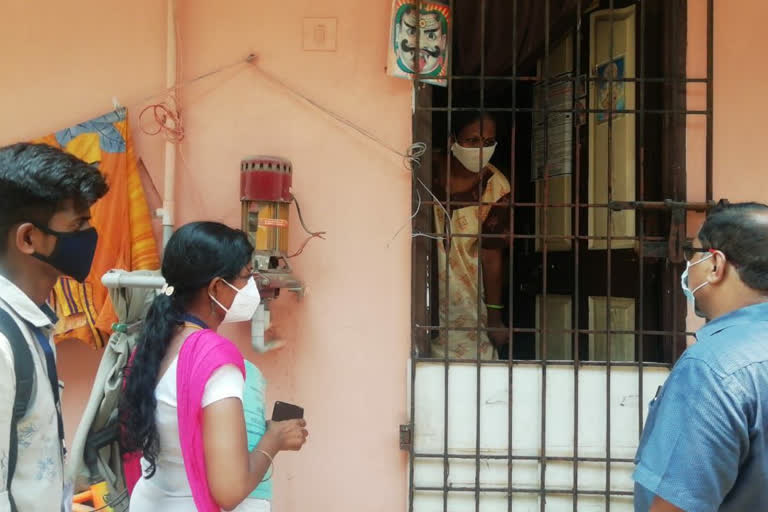Chennai: On a Saturday evening on the otherwise bustling roads of Chennai, the mood was grim, as the state goes into full lockdown the next day. Most of the supermarkets, shops are already closed and streets filled with people rushing to buy groceries and vegetables at the last minute. There was a sense of urgency but there was no panic among the people as they have gotten used to it. The present situation in Tamil Nadu is difficult, but not the worst. As of now, the state machinery is managing the situation with seriousness.
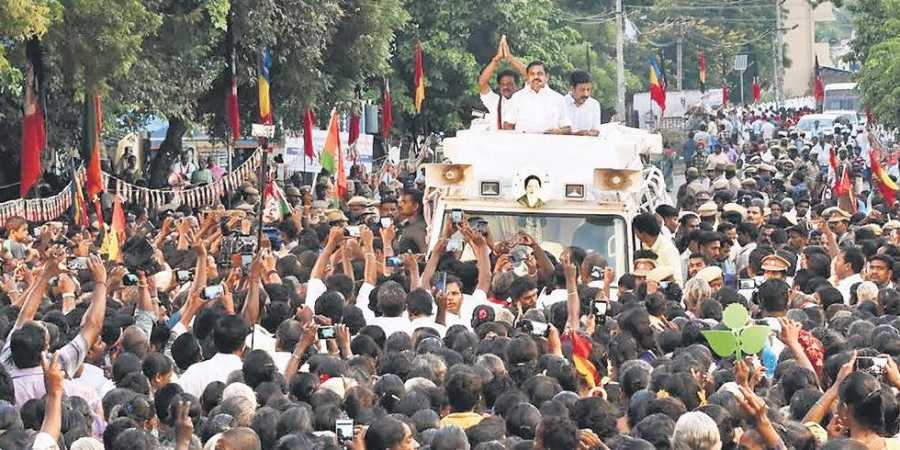
Cases started to spike in the state due to multiple reasons. It was mainly due to the state assembly election. Approximately 4.6 crores voters cast their votes with safety measures but that is not the problem. The real trouble was caused by the political parties, conducting mass meetings and huge rallies to demonstrate their popularity and strength. It was then the cases started to skyrocket in no time. The state's political leadership was missing on the driver seat, but the bureaucrats continued responsibilities to tackle the virus.
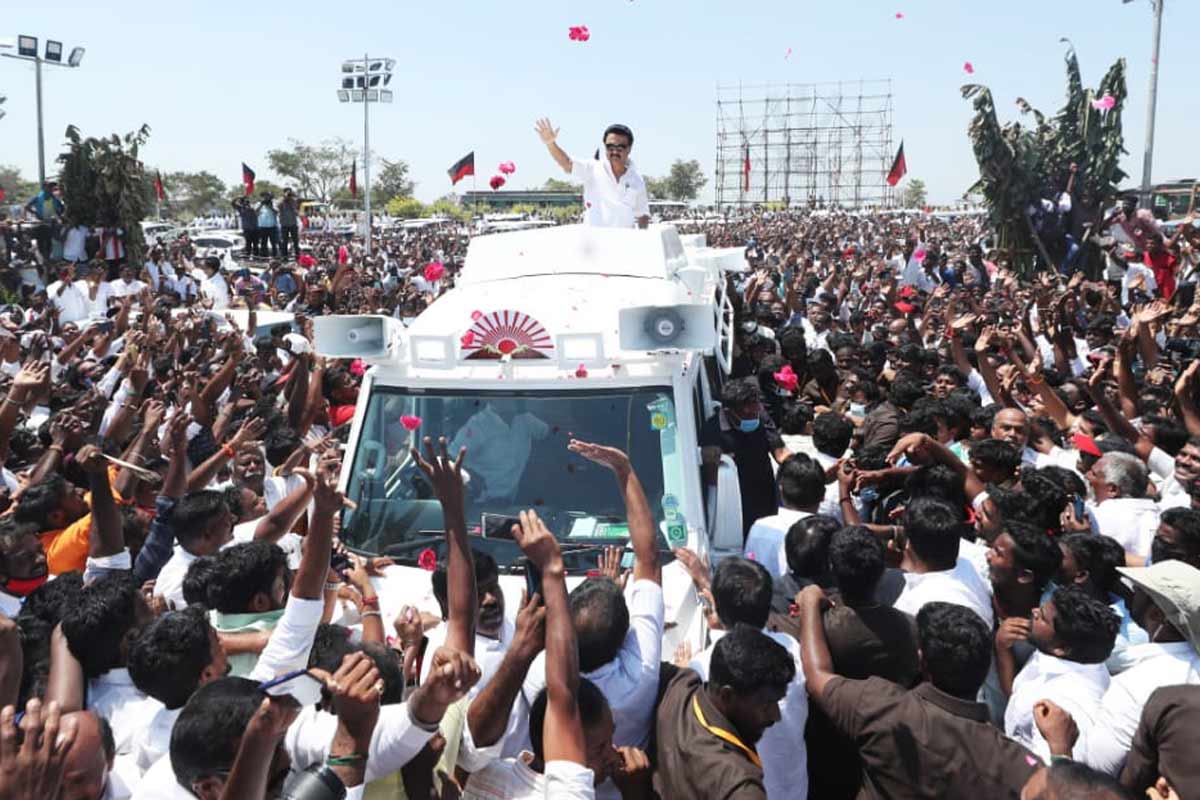
Though patients complain of a shortage of beds in some private hospitals, the government hospitals seem to be doing a lot better. "Only fools and rich go to the private hospitals," said a woman waiting in front of the UPHC in Choolaimedu, one of the localities with more caseload in Chennai. The state government website stopcorona.tn.gov.in lists essential details like availability of beds, ventilators, testing centres and other assistance. District-wise status of bed availability is updated in real-time with the number of beds occupied and those vacant. It also gives breakup details of oxygen beds, ICU beds, beds with ventilator facility.
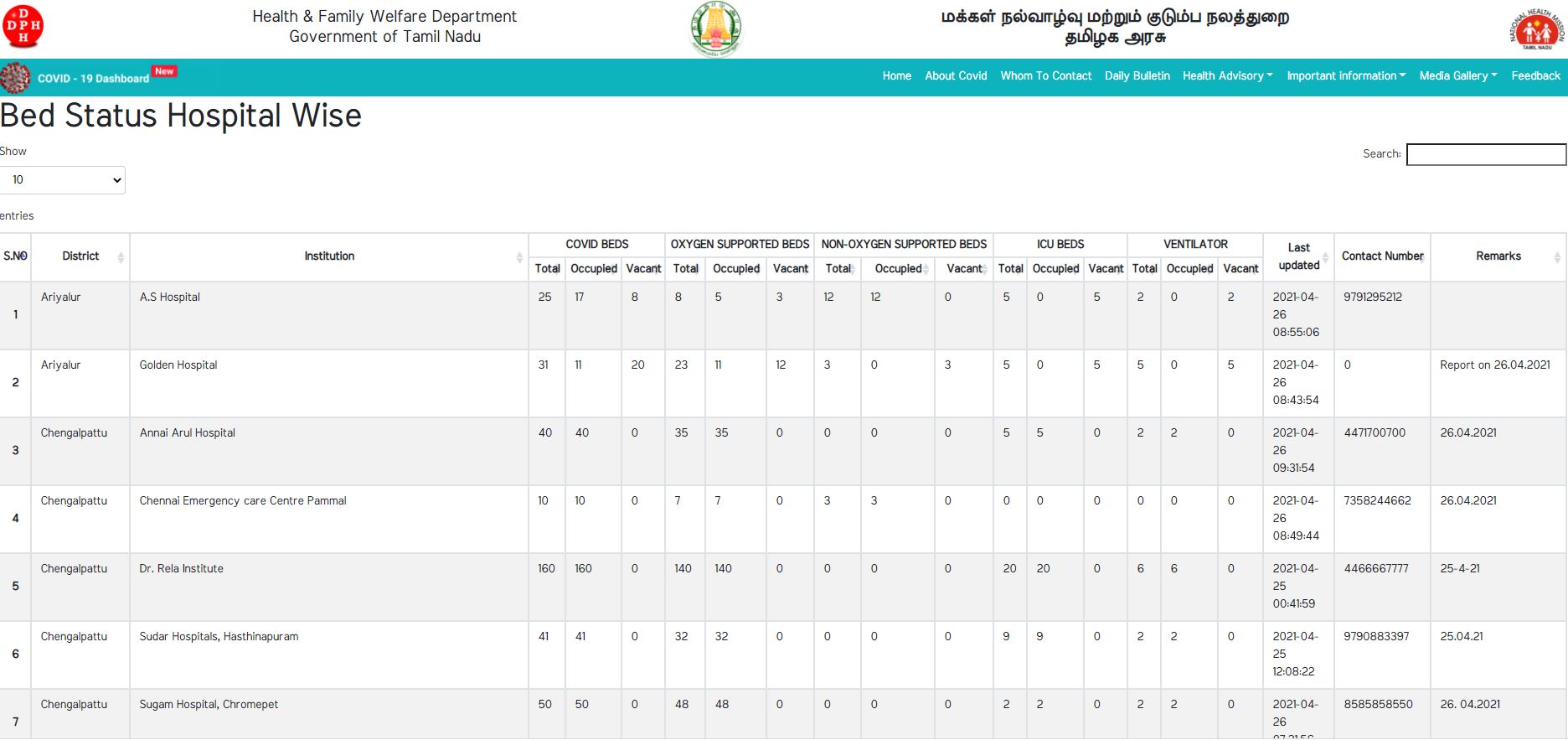
Also read: Sunday lockdown brings Tamil Nadu to a grinding halt
The state government boasts of 54,417 beds, of which 32,924 are with oxygen facilities. The state government says the total oxygen storage capacity has been increased to 888 MT from 395 MT in government hospitals after the first wave. The total storage capacity of both government and private services is at 1167 MT while the current usage is only 240 MT. Essential drugs like Remdesivir, Inoxaparin were procured and distributed to taluk level hospitals. The government says the current procurement will last for 20 days and it has ordered 2 lakh more supplies.
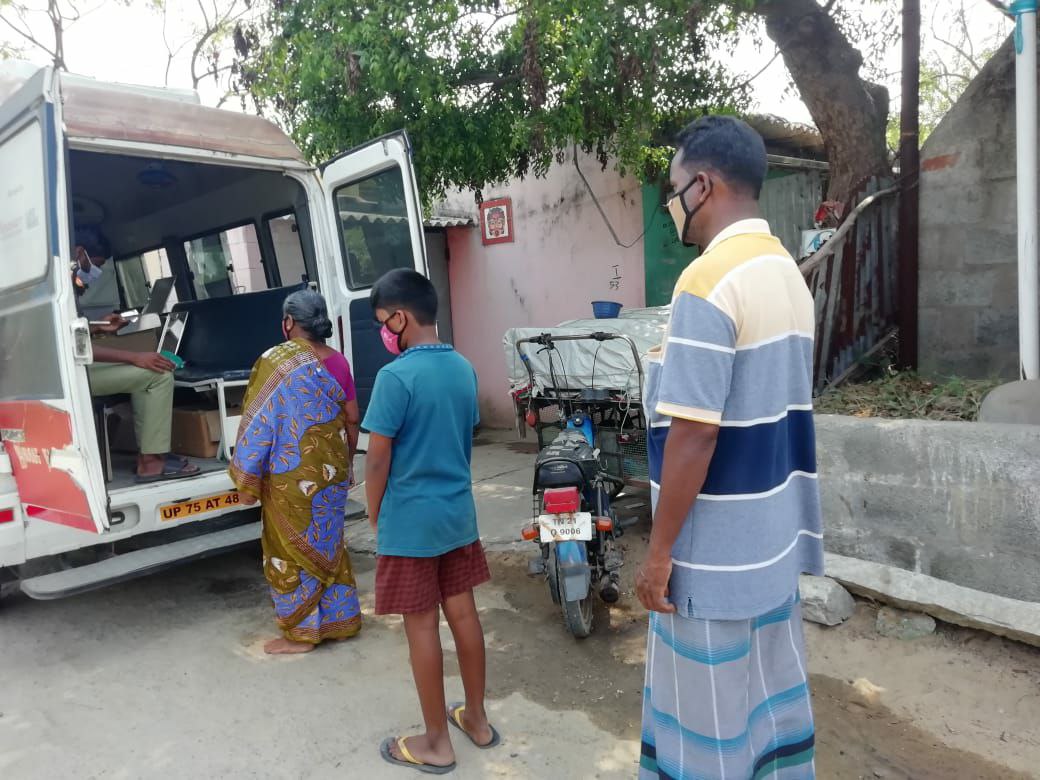
If there is an emergency the public can call 108 for ambulance service. There is a fleet of 1000 ambulances in the state and the government earlier promised to add 500 more. State's helpline 104 can be contacted for Oxygen shortage or any other emergency medical needs so that the patients need not run from pillar to post. Apart from this, Greater Chennai Corporation and other district bodies have their own Whatsapp assistance and local helpline numbers.
Tamil Nadu Medical Council vice president R.V.S. Surendran says that Tamil Nadu has a doctor-patient ratio more than what was recommended by WHO. WHO has recommended a doctor-patient ratio of 1:1,000, but Tamil Nadu has a ratio of 1.6:1,000 instead. The incumbent Chief Minister Edappadi Palanisamy faced a battle to his very existence every day. Still, he opened 11 new medical colleges in the state. Now the district headquarters has a medical college hospital. The state primary healthcare infrastructure is located even in some of the remote parts helping the underprivileged.
Another strategy of the Tamil Nadu model is aggressive testing and contact tracing. Tamil Nadu state government says it is the only state that's taking only RT-PCR tests. More than 2.5 crore RT-PCR tests are taken till now and 80% of them in government facilities. With 263 testing centres across the state, on average, 1,26,298 samples are tested in a day. The local body authorities and health and family welfare department employees and volunteers go door-to-door surveillance. Streets with 3 to 5 patients are classified as containment zones and preventive measures are taken to curb community spread.
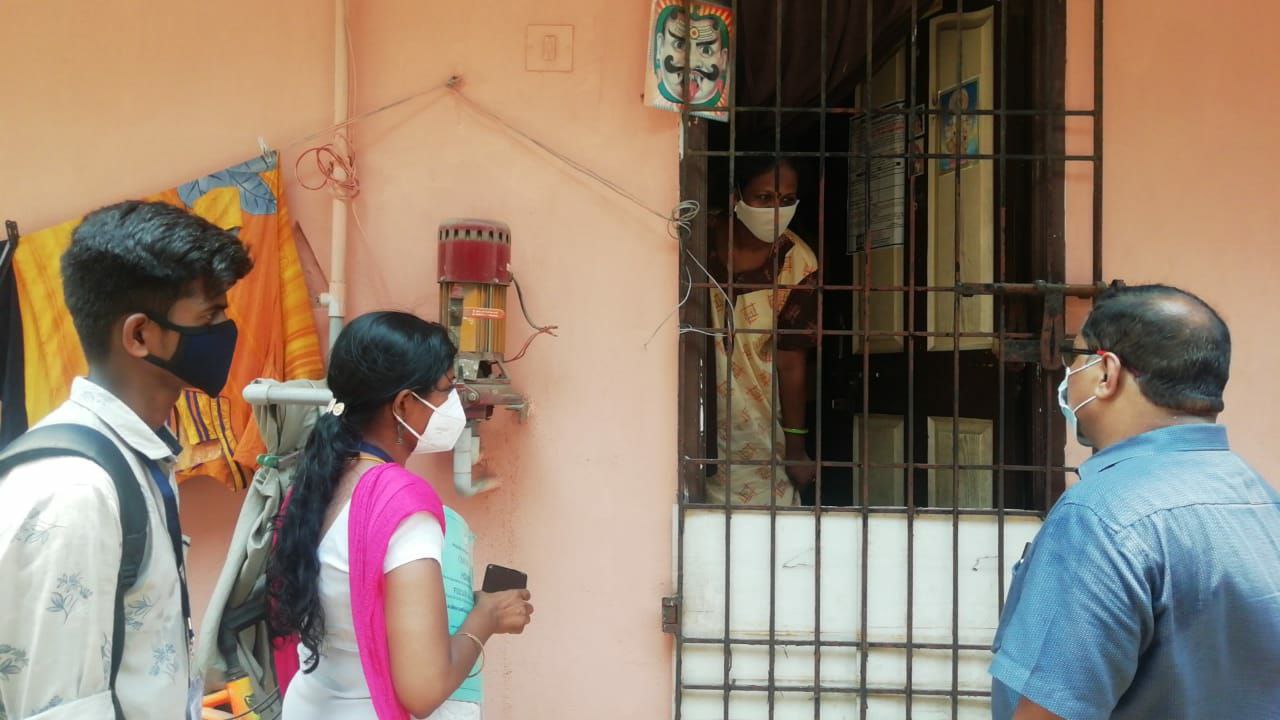
Also read: TN CM urges Centre to supply sufficient vaccines to states
Fever camps are set up at crowded places, markets and bus stands and neighbourhoods. Volunteers are deployed to help Covid-19 positive patients in home quarantine, buying them foods, groceries and other essential items. People arriving in the state via planes, bus, trains, ships and by road are tested for Covid. People without masks, individuals, shops, trading centres not following adequate social distancing are fined or sealed. Literacy is one of the advantages of the state with the public abiding by the Covid preventive measures as awareness about the virus increases.
The Dravidian state takes an aggressive vaccination drive to curb the spread of the virus and plans to develop 60% herd immunity through inoculation. With 4,497 centres across the state, more than 50 lakh persons have been vaccinated. The state government is organising vaccination drives for vaccinating 100% industrial workers, daily wage labourers, market vendors, traders, teachers, taxi, auto, bus drivers, employees of government institutions, hotels, private companies along with frontline workers and others.
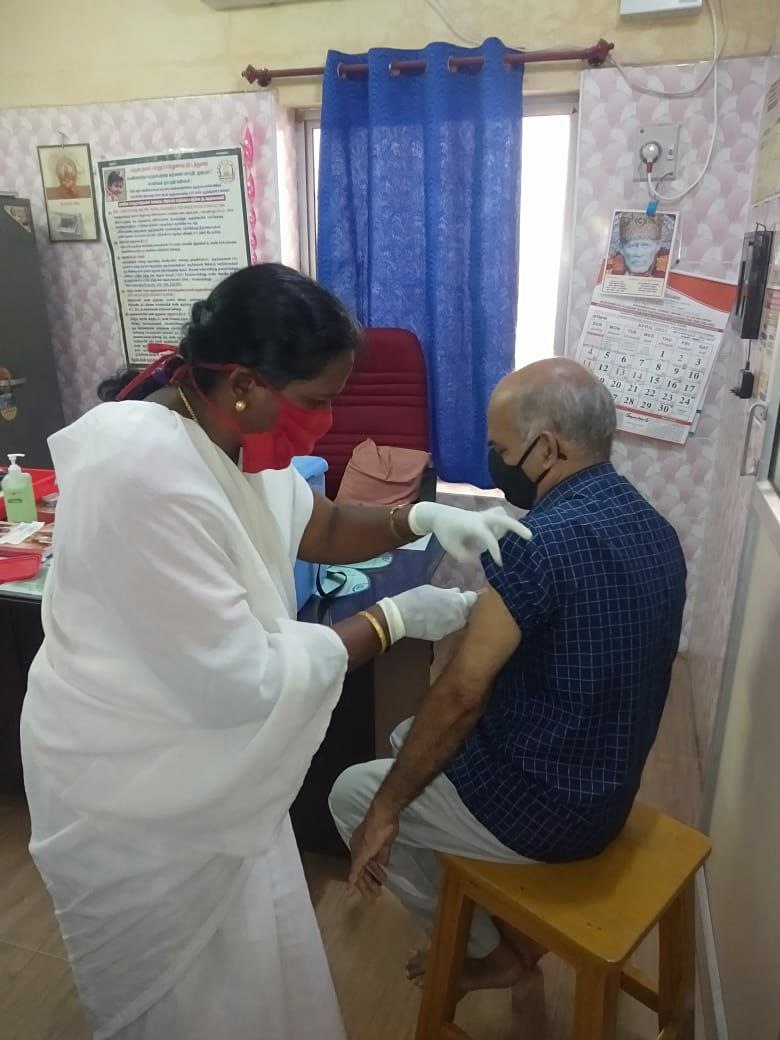
Currently, there is no shortage of beds or oxygen cylinders in Tamil Nadu says state health secretary Dr J Radhakrishnan who is at the forefront of fighting the pandemic. Speaking to ETV Bharat he said that, "Tamil Nadu has 54,000 beds in hospitals. Recently, 2,400 beds with oxygen facilities were established in Chennai. 7,000 beds with oxygen facilities were kept in place to support critical care. Apart from this the state has 34,000 beds in dedicated Covid care centres and plans to increase it to 70,000. Among 95,000 Covid-19 patients, 50% of them are in home quarantine and only 20% of them are admitted in hospitals and 8% of patients are in covid care centres". He added that to bring down mortality the total number of cases should be brought down. "Sunday lockdown was implemented in that direction. Fever screening, monitoring and increased testing are the reasons for early detection and treatment".
All is not too rosy, the doctors and paramedical staff complain of long working hours at covid wards. They were not given quarantine facilities, a necessity to protect their families. They were calls to improve the quality of healthcare and sanitation provided in government hospitals. Doctors in rural PHCs are inadequate.
Also read: Election Commission officers should be booked for murder: Madras HC
As the Covid-19 second wave batters the country, the gloomy scenes at the hospitals, showing desperate patients waiting for beds and losing dear ones to oxygen shortage in many parts of the country expose the dire state of our medical infrastructure. Pandemic at this scale and destruction was completely unexpected in 2019, as it came as a shock. But in the second wave in 2021, the blame lies mostly on political leadership, bureaucracy and excessive centralisation in decision making. Tamil Nadu sure has a long way to go but the state sets an example for the country at a time when the country is facing the biggest challenge after its partition.
